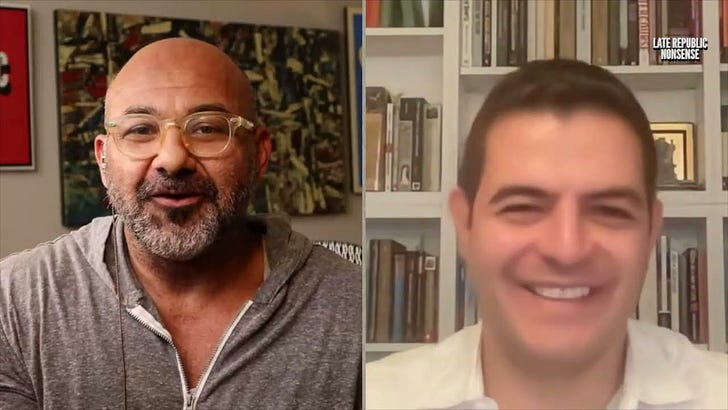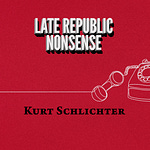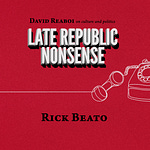Episode 12: Sohrab Ahmari
In many crucial ways, the scenes in politics and music are quite similar: the people who arrive in town roughly concurrent with you are your peers—you could almost call this peer group a “class” in the academic sense—and you spend a lot of time together, navigating the scene. You have your own local haunts, too. As years go by, most everyone splits apart—careers, families, different projects and relocations around the globe—and that’s not even considering often profound political or artistic shifts and disagreements of varying levels of intensity and vitriol.
I met Sohrab when we were both precocious “young professionals” living in Washington, DC, well over a decade ago. Since that time, he’s made a name for himself in media—contributing to the editorial page at the Wall Street Journal and the heading up the same at the invaluable New York Post. Throughout, he’s been a wonderful writer of articles and books, including about his conversion to Catholicism. Today he is a contributing editor at The American Conservative and, most recently, the author of The Unbroken Thread: Discovering the Wisdom of Tradition in an Age of Chaos.
Sohrab has also been at the forefront of a group of conservative intellectuals who have come to re-evaluate the legacy of classical liberalism and found it wanting. Once something of a third rail of political discourse, more observers of politics today are coming to the conclusion that the value neutrality of liberalism isn’t anywhere near sufficient to preserve what’s left of American society.
We spoke about all of that—which includes, of course, his famous conflict with David French—and his love for David Lynch’s work, especially the exquisite Mulholland Drive.
Intro Music
“Creek” is the final track on an album that rarely gets the credit it deserves. It’s one of the more fascinating hidden gems in Creed Taylor’s CTI label. At the time, Brazilian percussionist Airto Moreira was ubiquitous: he was the most in-demand percussionist for every imaginable session that required some element of Brazilian rhythmic flavor—and that meant just about all of them. After showing up in New York, he was hired by Miles Davis to play in his band with Keith Jarrett and John McLaughlin in 1970, and then the floodgates opened.
When he made his first record for CTI in 1972, he was able to recruit a formidable group: pianists Chick Corea, Nelson Ayres, and Keith Jarrett on one of his rare sideman appearances; bassists Stanley Clarke and Ron Carter; and the guitar of George Benson. Of course, Aorta’s wife, Flora Purim, makes an appearance here as well. The whole record is worth hearing; Free is a minor masterpiece.













Share this post